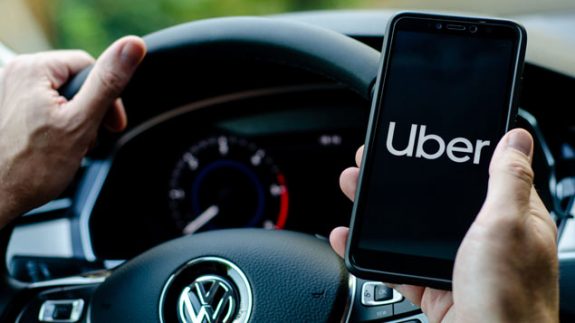Is Jack as good as his master ?

In a move that would have Karl Marx and George Orwell high-fiving on Broadway, New York Uber (and Lyft) drivers have decided to take on their masters (who by a quirk of capitalist legal fiction are not really their masters according to the law) and create an ‘app’ that will challenge the dominance of these ride-share gurus.
It has dawned on these drivers that they may have been conned into believing that the GIG economy would make them self-employed masters of their own destiny.
As an aspiring self employed driver they may have missed the bit about having to supply and maintain their own vehicle, pay for their own fuel, insurance and repairs out of their own pockets with their share of the fare they have collected being considerably less than that of the owner of the ‘app’ who, remember, is not their employer. Thus has no obligation to provide employment conditions such as paid holidays and sick leave, workers compensation or superannuation. In fact theses workers are a modern version of the serf of feudal times.
The creation of this gig was a capitalist’s wet dream : create an ‘app’ to give an electronic access point to the traditional taxi market and then encourage a group of people to think of themselves as self-employed while you exploit them and watch the money roll in.
In New York, a number of these drivers are getting together and forming a co-operative where the drivers become shareholder owners of the business thus participating in the profits and genuinely becoming entrepreneurs in a self employed enterprise. What these drivers have done is to cut out, not the middle man so much, but the leech who seeks to take on the role of the Lord of the Manor in his feudal paradise.
In Australia matters have not yet evolved to the stage they have in New York with our sardonically named Fairwork Commission – also known as a grazing paddock for Liberal Party mates, currently bulging at the seams with a President, two Vice Presidents, nineteen Deputy Presidents and twenty commissioners with a couple more on the reserves bench – maintaining that gig workers are self employed and that they just love the flexibility of low paid work.
In the UK things have taken a different turn with the Supreme Court of the United Kingdom unanimously dismissing an appeal brought by Uber against earlier rulings. The Court determined that Uber drivers are “workers” for the purposes of relevant employment legislation and are entitled to, among other things, being paid at least the minimum wage, and to receive annual paid leave, paid sick leave and rest breaks.
The UK decision, which may be influential on any future court challenge in Australia, looked at five key criteria to determine that the drivers were workers who were subject to the control of their “employer”.
These were:
- Uber sets the fare for rides booked through the app and drivers are not able to charge more than the fare calculated;
- Uber specifies and imposes the terms on which the drivers perform their services;
- the drivers’ choice about whether to accept requests for rides is constrained by Uber, for example by penalising drivers who decline trips too frequently;
- Uber exercises control over the way drivers perform their services, via a rating system; and
- Uber restricts communications between passengers and drivers to prevent any continuing relationship beyond an individual ride.
The next move in Australia will be to take the issue to the courts for determination but in the meantime a driver owned co-operative seems like a good alternative for the drivers : after all it doesn’t take much to set up an ‘app’, does it ?
Like what we do at The AIMN?
You’ll like it even more knowing that your donation will help us to keep up the good fight.
Chuck in a few bucks and see just how far it goes!










3 comments
Login here Register here-
B Sullivan -
Terence Mills -
DrakeN
Return to home page“…the drivers become shareholder owners of the business thus participating in the profits and genuinely becoming entrepreneurs in a self employed enterprise. What these drivers have done is to cut out, not the middle man so much, but the leech who seeks to take on the role of the Lord of the Manor in his feudal paradise.”
But the leeches are middle men. They are people who connect a business with its customers. They are the link between the two. Middle men who are paid for nothing more than making the connection. The French word for such people is entrepreneurs, literally between-takers. If a self-employed person deals directly with the customer no entrepreneur is required for the enterprise to take place, which in English is described as cutting out the middleman.
Shareholders are a different kind of leech who profit from the work of the non-shareholder workers of their business without having to do anything other than own a share in that business.
B Sullivan
Thanks for your post, I was starting to feel like a shag on a rock – another useful Anglo/Australian metaphor !
My point in the article being that the Uber drivers in New York are taking back the initiative. Incidentally, I note that former US President George W. Bush was said to have proclaimed :
“The problem with the French is that they don’t have a word for entrepreneur.”
@ B Sullivan,
pardon me being picky but the dictionary gives the derivation of entrepreneur as:
“early 19th century (denoting the director of a musical institution): from French, from entreprendre ‘undertake’ (see enterprise).”
and the definition as :
“noun
a person who sets up a business or businesses, taking on financial risks in the hope of profit: many entrepreneurs see potential in this market.
No reference to a middleman.